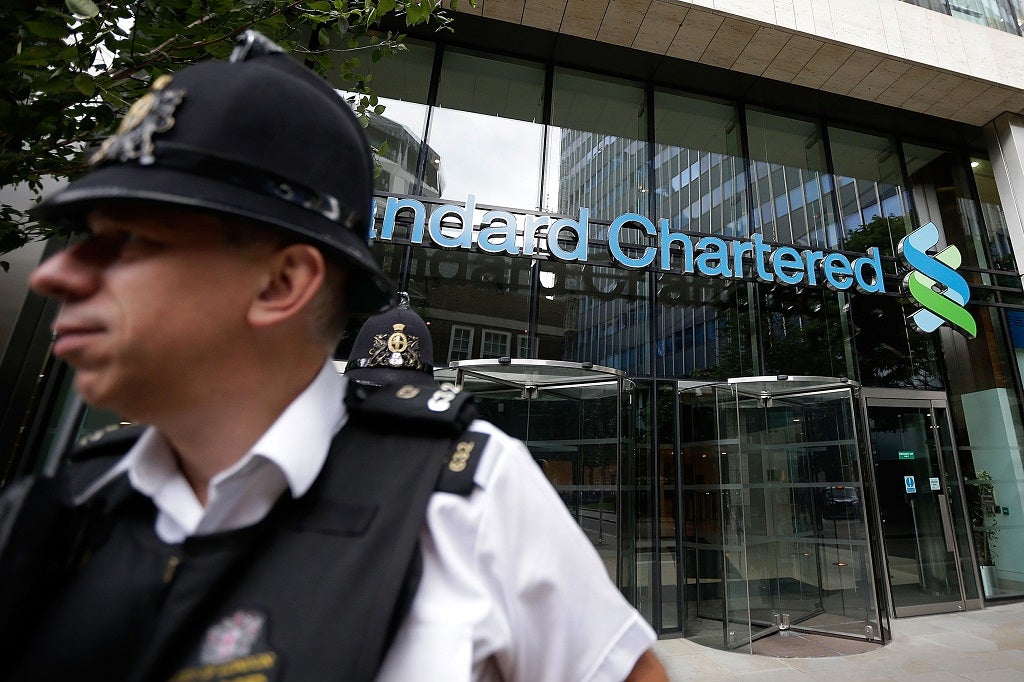These fines for HSBC, Standard Chartered and LLoyds prove there's one law for US banks, another for Europe's
There is a suspicion that the swingeing fines imposed on foreign banks are the result of political imperative

Your support helps us to tell the story
From reproductive rights to climate change to Big Tech, The Independent is on the ground when the story is developing. Whether it's investigating the financials of Elon Musk's pro-Trump PAC or producing our latest documentary, 'The A Word', which shines a light on the American women fighting for reproductive rights, we know how important it is to parse out the facts from the messaging.
At such a critical moment in US history, we need reporters on the ground. Your donation allows us to keep sending journalists to speak to both sides of the story.
The Independent is trusted by Americans across the entire political spectrum. And unlike many other quality news outlets, we choose not to lock Americans out of our reporting and analysis with paywalls. We believe quality journalism should be available to everyone, paid for by those who can afford it.
Your support makes all the difference.American cops and dark-suited regulators are shaking down Western banks and companies with such ease that they must be thinking Christmas has come early. The list of institutions which this week admitted their crimes and reached a financial settlement with US authorities includes some of Europe’s finest: Standard Chartered (fined $327m for sanctions-busting), HSBC (fined $1.9bn for money-laundering and sanctions-busting), Lloyds Bank ($350m for sanctions-busting), and Siemens ($800m for corruption).
But in a globalised banking economy, where you might expect all big banks to be linked in criminal enterprises (as well as legitimate ones, of course), there are some notable absentees: American banks. This omission is all the more surprising because American banks have been taken to task in recent years for activities quite as nefarious as these other institutions.
Citibank for example, was investigated with the same blunt instrument by the Senate’s Permanent Subcommittee on Investigations as was HSBC. The Committee produced a very large report on the collusion between the American bank and politicians like the late president Sani Abacha of Nigeria, the late President Bongo of Gabon, the late Carlos Salinas of Mexico and today’s president of Pakistan Asif Ali Zardari. This documented how the bank enabled each of these politicians to hide offshore money, running into many millions. This money had been obtained corruptly.
The bank’s confession to its compliance failings was delivered by its chairman under a humiliating grilling from the Senate committee. It was televised and he resigned shortly after. But the buck stopped there. Similar embarrassment was heaped on Bank of New York, another one of America’s finest, which was found to have been laundering Russian money.
American banks’ absence from the top echelons of the fining rota can be explained in a number of ways. The first touches on the fining process itself. The size of the fine is arrived at as a result of a negotiation between lawyers acting for the US government and the bank itself. One might suspect that US banks better understand the legalistic processes and can manipulate them to their advantage.
But a trend that will worry European banks active in America is the suspicion that the authorities imposing these swingeing fines are responding to a political imperative. They are saying that if you are a foreign bank and you want to do business in America, there is a heavy cost. It bears no relation to offences and charges. It is all to do with growing protectionism among American regulators, who have no hesitation about picking the pockets of overseas players on Wall Street, while leaving their own transgressors largely untouched.
Nick Kochan is the author of books on economic crime including ‘Corruption: The New Corporate Challenge’
Join our commenting forum
Join thought-provoking conversations, follow other Independent readers and see their replies
Comments